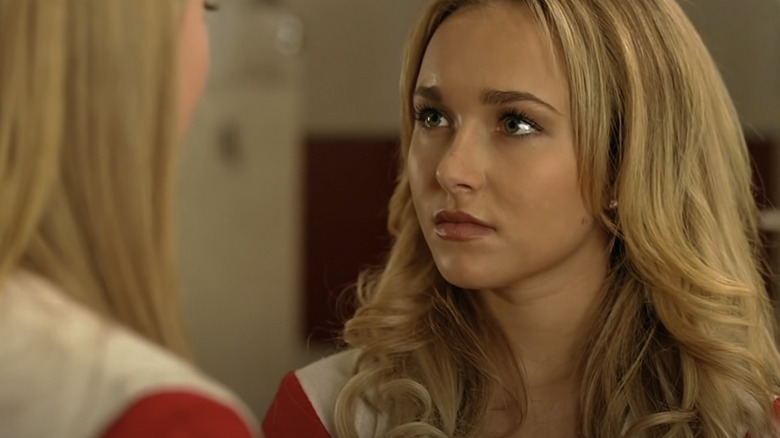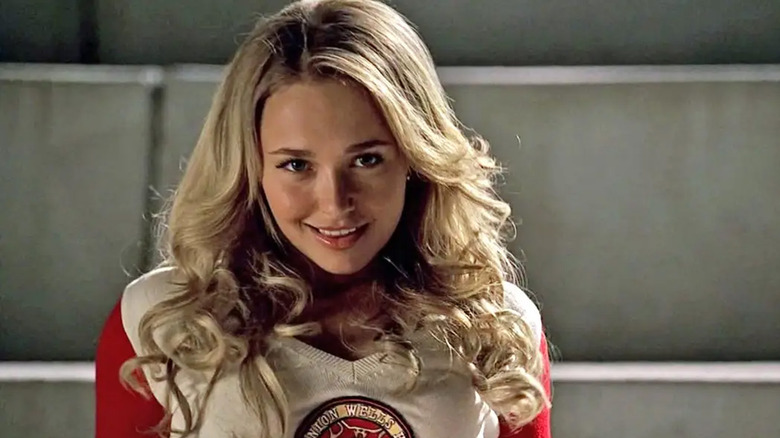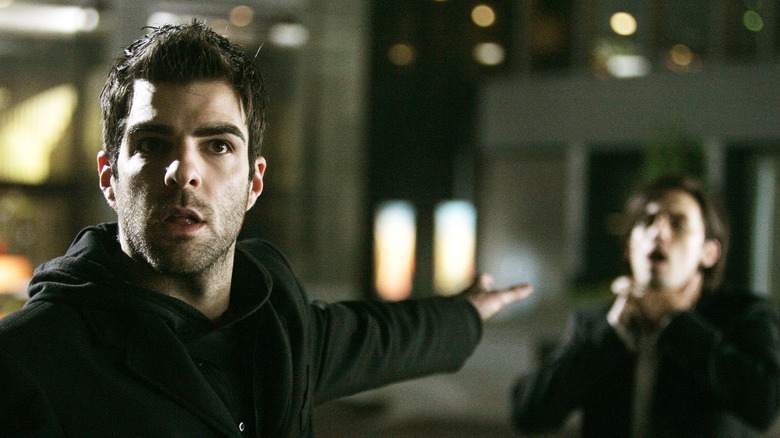Heroes Is Better Than You Remember
It's 2006. You've seen the trailer. "Save the cheerleader, save the world."
"Heroes" quickly became a massive pop culture phenomenon, posing the question, "What would superheroes be like if they really existed?" Let's not understate it: "Heroes" was a groundbreaking TV show released at a time that predated "Iron Man" and the MCU. Its grounded and realistic depiction of superpowers was revolutionary, and more in line with M. Night Shyamalan's "Unbreakable" than many of the superhero movies of its era.
"Heroes" was about to change the world.
Its first season was incredible. Telling the story of a group of ordinary folks who realize they have superpowers, the show mimics the long-form storytelling of American comic books to perfection. The episodic nature of TV proved to be the perfect canvas to tell these types of stories.
Enter Claire (Hayden Panettiere), the aforementioned cheerleader. She's one of many newfound heroes, and she creates a YouTube-style video documentary chronicling the birth of her indestructible powers. Other heroes include Peter (Milo Ventimiglia), an empath who can take on other heroes' abilities; his brother Nathan (Adrian Pasdar), a U.S. congressional candidate with the ability to fly; Matt (Greg Grunberg), an LAPD police officer who can read people's minds; and fan-favorite Hiro (Masi Oka), an office worker who can manipulate time and space.
Throw in some twists and turns and a rather excellent villain, and you have one of the defining superhero shows of all time. "Heroes" was a great concept, and the first season went down in history as one of the biggest pop culture moments of the early 2000s.
Save the cheerleader, save the world
"Heroes" season 1, also known as "Volume One: Genesis," was essentially an origin story for our newfound heroes. Half the fun was in watching the characters explore their new powers, with Claire testing the limits of her invulnerability by throwing herself from great heights and mangling her hand in the family garbage disposal. There was even one scene where she awakens during an autopsy. Gross.
Of course, Claire wasn't the only one trying out her newfound powers. Matt struggled to come to terms with reading everyone's thoughts, while Hiro worked to hone his abilities after a time jump accidentally landed him six months in the past.
The culmination of heroes and their powers was the defining story of Season 1, with the group coming together to avert a cataclysmic explosion at Kirby Plaza in New York City. As a gripping story about a cast of truly inspiring heroes, the first season was a huge success. It remains the pinnacle of the show: A near-perfect season of television with fresh ideas, interesting characters, and a rich tapestry of storytelling.
Unfortunately, later seasons just couldn't replicate the formula. After the first season finale, ratings began to drop as the story of our heroes took a left turn. The show introduced new characters who walked the line between good and evil ... but the story just didn't stand up to the heady highs of the show's first season, and it wasn't enough to win over audiences.
How do you solve a problem like Sylar?
Then there was the show's main villain, Sylar, played by Zachary Quinto. A defining role for the then-up-and-coming actor, Sylar was the perfect foil for our protagonists.
His ability was similar to Peter's — he could acquire the powers of other heroes — but his methods were far more bloody. The son of a watchmaker, the key to his ability was in understanding the complex parts that make everything tick. Essentially, he removed parts of his victim's brains and used them to acquire their powers.
A superpowered serial killer, Sylar was the first real supervillain to appear on "Heroes," and he provided a genuine threat to the heroes we know and love. His grim and gritty take on the supervillain also made for amazing TV. His methodology and the investigation to find and capture him mirrored popular police procedurals, but with a superpowered twist. And some of his more shocking kills made for perfect water cooler moments. During the first season, everyone wanted to know who Sylar was, and what he was doing. A shadowy figure with unclear motives, Sylar provided an excellent mystery for viewers in an era when social media was just beginning to take off and redefine the way audiences watched and talked about television.
Was Sylar the one responsible for the event at Kirby Plaza? "Heroes" kept us guessing the whole way.
Unfortunately, later seasons lacked a solid villain, as Sylar tried to turn good. The villains that replaced him would become increasingly diluted, with more complicated motives that never quite struck the same powerful chord as Sylar's story.
But even though it occasionally stumbled, later seasons of "Heroes" were still good. Great, even. They just lacked that special something that made season 1 so incredible. In 2022, with more niche TV than ever, some shows would kill to have the level of cultural awareness "Heroes" had. Let's just hope Sylar's not in charge of a streaming service these days.


